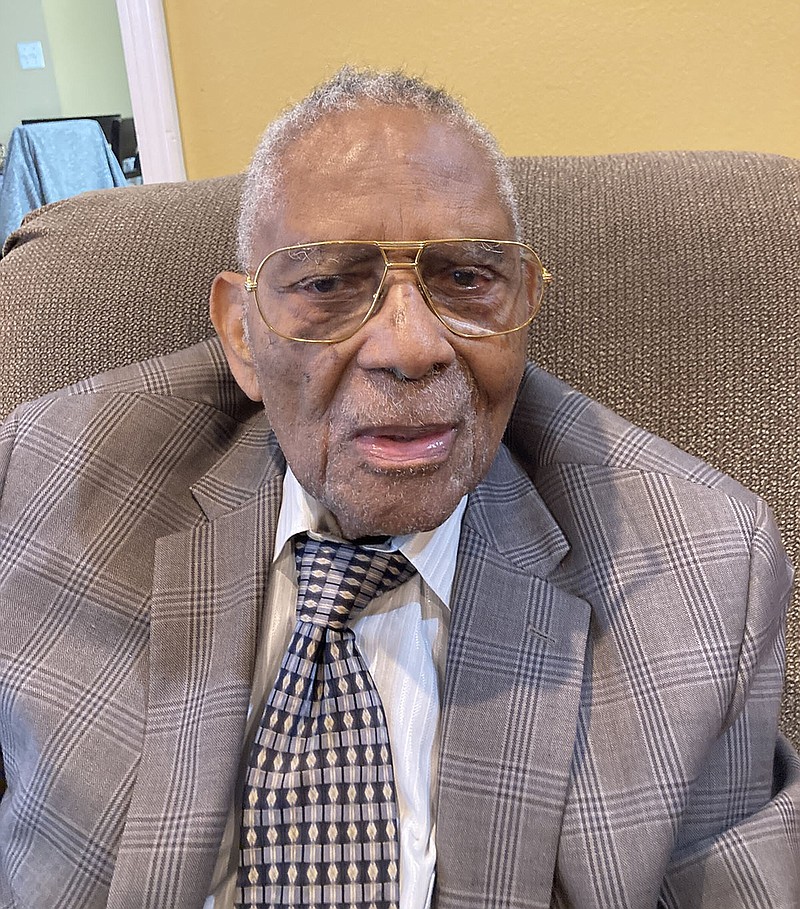Retired Tarrant County, Texas, District Judge Clifford Davis' dream of being a lawyer started when Scipio Jones passed through his hometown, Wilton, Ark., while working on the defense of 12 Black men accused of murder and sentenced to death after the Elaine Massacre of 1919.
"He came through our little town and spoke and that inspired me to be like him," says Davis, who recently celebrated his 99th birthday.
After college and then law school, he worked on school desegregation cases in Arkansas and in Texas, and even worked briefly alongside the late U.S. Supreme Court Justice Thurgood Marshall on the landmark case Brown v. Board of Education.
College, let alone law school, was not a given for Davis, whose father was a farmer in southwest Arkansas.
The local school only educated students through eighth grade, so the family rented a house in Little Rock so he and his siblings could go to Dunbar High School.
After graduation in 1942, he enrolled at Philander Smith College.
"I'm very proud of the training and experience I got at that Methodist institution," he says. "Back in those days, they emphasized being gentlemen. For instance, men had to wear a coat and tie in class. We were taught all types of ethics and intelligence and integrity and everybody had to belong to a club and participate in all kinds of activities around the campus, and I did that."
Davis was involved in choir, the dramatic club and basketball, as well as a civics and government organization.
He might have liked to go to law school in his home state following his graduation from Philander in 1945, but segregation prevented that.
"Back in those days, we couldn't go, but Arkansas would pay tuition to another school, to another state, where you could attend," says Davis, whose application to the University of Arkansas School of Law in Fayetteville was rejected because he is Black.
He went instead to Howard University in Washington. In the fall of 1946, he was offered a chance to go to law school in his home state after all.
"The dean of the law school told the administration that there was litigation that was going to end in my favor," he says. "But they wanted me to pay my tuition in advance because they wouldn't want to go to all that trouble if I wasn't coming."
"All that trouble" included accommodations to keep him, a Black student, separate from all the white students. Davis says that Silas Hunt, the young man who was the first to integrate the law school in 1948, heard lectures in the law school basement, only after the other students heard it upstairs. To the administration's surprise other students joined him there, hoping to hear the lectures again to reinforce their learning.
"I'm glad I went ahead and stayed at Howard and that I pursued it the way I did," says Davis, who graduated from Howard and was admitted to the bar in Arkansas in 1949.
He practiced in the Pine Bluff law office of Harold Flowers, where he filed integration lawsuits against several Arkansas schools.
He moved to Camden for a bit before going on to Fort Worth.
"I moved to Texas because I wanted to be part of a bigger community," he says.
He began practicing there in 1953, and he was elected criminal district judge in 1983.
"In 2017, the University of Arkansas called me up and offered to award me an honorary doctorate degree in law, which I accepted," he says.
Davis participated in the graduation exercises at the university that year, along with his nephew who graduated from there with a bachelor's degree.
"But my greatest joy, was that the board of the college put a Black person, who had been on the faculty at the university, chancellor, and in March 2023 he was finally installed publicly as chancellor of the university," he says. "I attended that installation and I ended up saying that I opened the gate to the field but I did not go in and play. A number of people did go in and play and six or seven years later a school that would not admit a Black person to the school of law to study now has a Black man as chancellor. It's a source of pride and joy that somehow my persistence helped in that process."
Davis retired from the bench in 2004.
"I continued to practice in a limited way with the law firm until about four years ago," he says. "I still wanted to work with the community and I concentrated on trying to assist elderly people, particularly, because older people who had limited capacity as a career and had little income, did not have big savings accounts and then were living on Social Security."
Those people, says Davis, may not be able to afford to hire a lawyer to help with small matters affecting their houses or taxes, and he helped them find resolutions that typically didn't require court action.
"I did that for years and I enjoyed it and I do some of that still," says Davis, "or I'll recommend somebody else."
If you have an interesting story about an Arkansan 70 or older, please call (501) 425-7228 or email:
kdishongh@adgnewsroom.com
